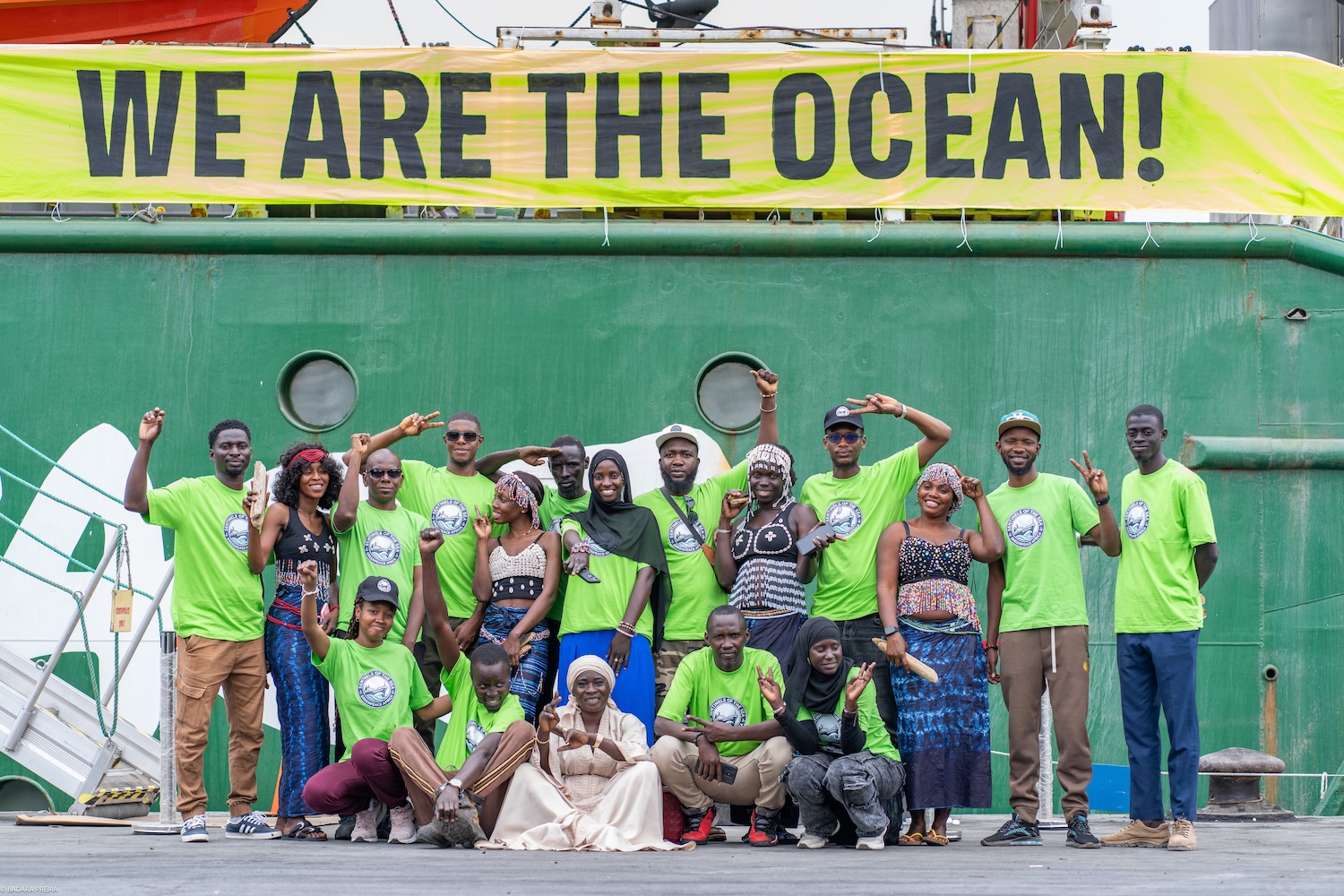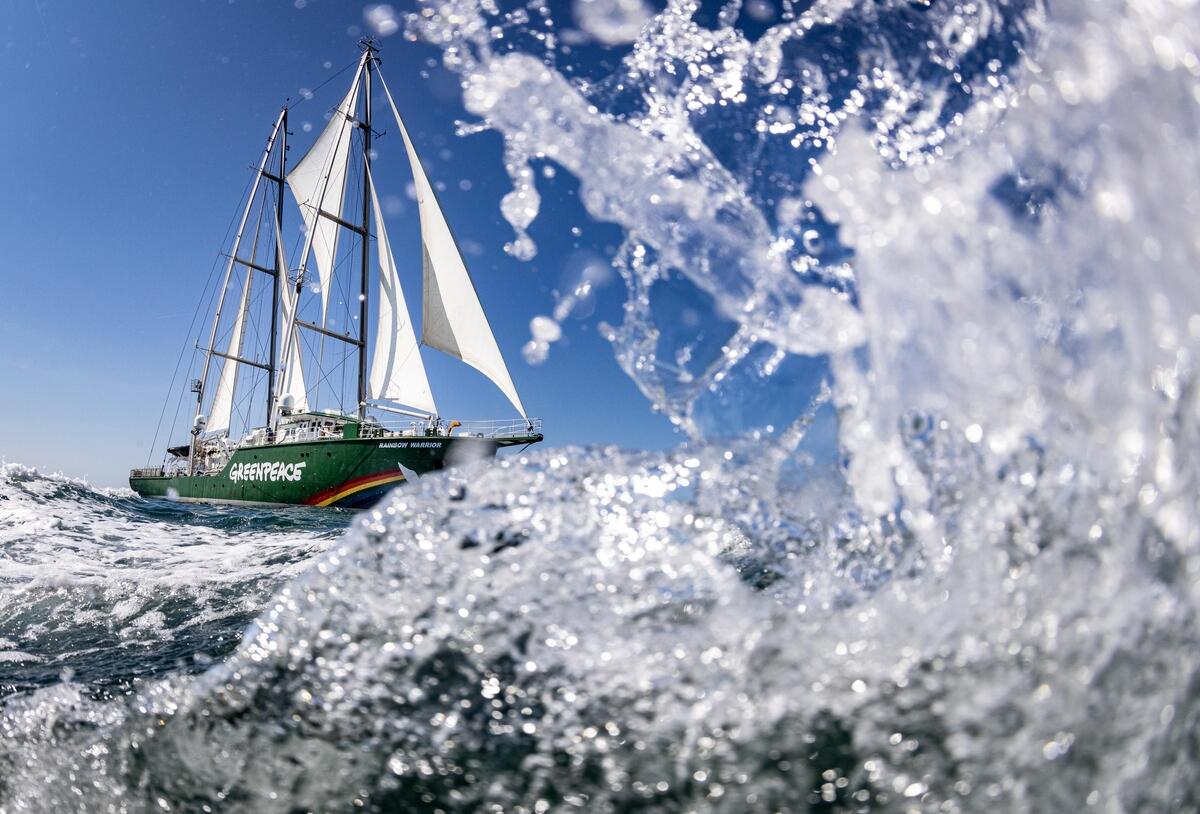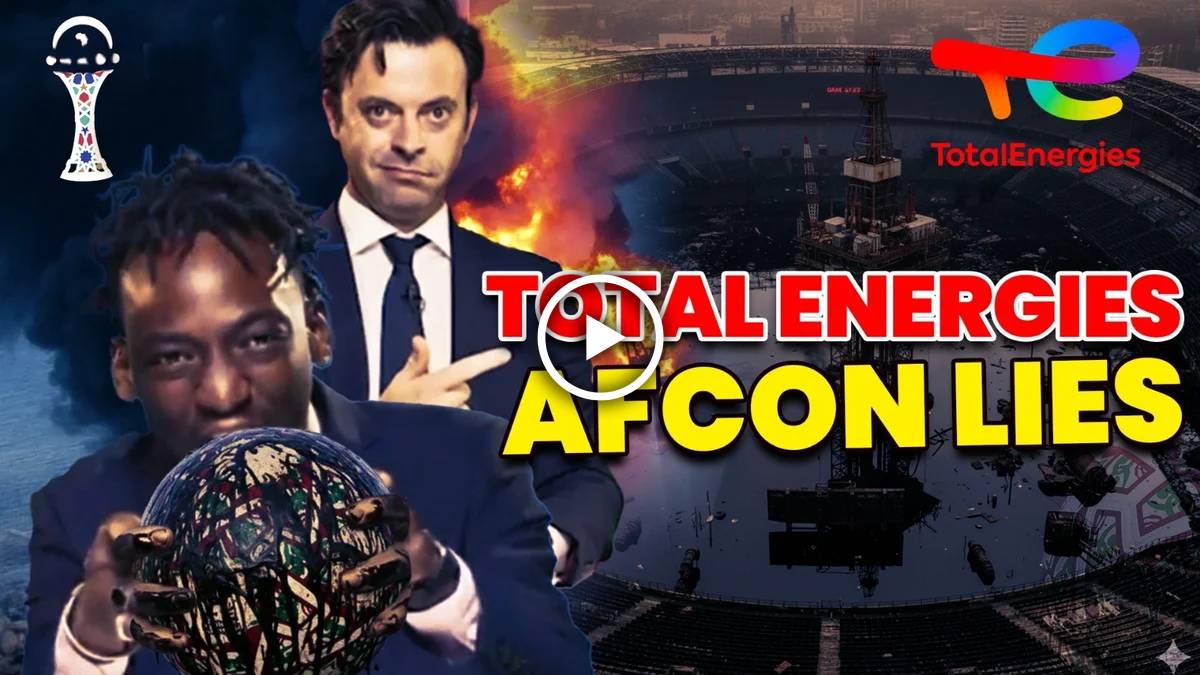In the wake of the jury verdict in a North Dakota court in the SLAPP suit filed by fossil fuel pipeline company Energy Transfer against Greenpeace International and Greenpeace entities in the US, the African Energy Chamber (AEC) has issued statements laced with vindictive triumphalism and misinformation. Their claims that the Greenpeace network is an enemy of African development are not only unfounded but deeply misguided. These accusations must be addressed, as they misrepresent the work of Greenpeace Africa and the true issues facing the continent.
The AEC’s aggressive stance in supporting an abusive legal tactic attempting to silence dissent is deeply concerning. By endorsing a SLAPP suit, they are setting a dangerous precedent that threatens the very foundation of civic space and environmental justice in Africa. This is not about Africa’s development. Rather, it’s about shielding fossil fuel interests from accountability and suppressing opposition to destructive projects like the East African Crude Oil Pipeline (EACOP). This approach prioritizes corporate profits over the well-being of African communities and their future.
The lawsuit in question is a Strategic Lawsuit Against Public Participation (SLAPP) – a type of abusive lawsuit designed not to deliver justice but to exhaust, intimidate, and silence activists. These lawsuits are specifically intended to create fear, stifle free expression, and punish those who expose environmental harm. The AEC’s support for such tactics reveals its true priorities: not the people of Africa, but the fossil fuel profiteers who benefit from exploiting the continent’s resources at the expense of its environment and communities.
The AEC continues to paint Greenpeace Africa as an outsider obstructing Africa’s progress. This narrative is outdated, misleading, and deeply disrespectful to the African communities who are at the forefront of the fighting against harmful oil and gas projects. Greenpeace Africa exists to act in solidarity with them – from Kenya to Senegal, from the Congo Basin to coastal Tanzania – helping amplify their voices and ensure their rights are protected.
What the AEC calls “progress” too often results in land grabs, oil spills, forced evictions, and ecosystems pushed to the brink. Fossil fuel extraction across the continent has left behind poisoned water, devastated farmlands, and broken promises. The wealth from these projects is largely exported while the risks and costs are left behind to be borne by local communities.
If the AEC is genuinely concerned about energy poverty, it should stop lobbying for pipelines and instead advocate for distributed solar, wind, and green industrialisation that can deliver sustainable energy to all Africans. Africa has the sun. It has the wind. What it lacks is the political will to liberate itself from extractive dependency and groups like the AEC are part of that problem.
Greenpeace Africa’s history is built on peaceful resistance, scientific integrity, and solidarity with movements demanding justice. We have never, and will never, be intimidated by those who misuse courts to suppress criticism. The AEC’s suggestion that the SLAPP lawsuit “vindicates” their position is not just misleading; it’s an endorsement of corporate bullying. Their eagerness to set a precedent that allows companies to silence environmental defenders is not only troubling but deeply undemocratic.
SLAPPs are not a legitimate legal strategy; they are a political weapon designed to stifle dissent and intimidate those who stand up for environmental justice. If Africa chooses to follow this path, it risks undermining the fundamental rights of its own citizens to speak out, protest, and protect their land and livelihoods.
Let it be clear: Greenpeace Africa will not be silenced.
Contrary to the AEC’s claims, it is not Greenpeace Africa that is obstructing development, it is fossil fuel dependency itself. “Development” that tramples over communities, contaminates ecosystems, and accelerates climate collapse is not development. It is exploitation.
The people of Africa deserve real choices, real agency, and real alternatives. Not pipelines that serve export markets. Not oil rigs that leave behind ecological collapse. Not energy strategies designed in corporate boardrooms and rubber-stamped in African capitals.
Communities are rising up because they know the stakes. Their lands, their livelihoods, and their future are on the line. And Greenpeace organisations will show solidarity with these communities, as we always have.
Africa does not need more oil pipelines. It needs political courage. It needs energy systems that are democratic, clean, and rooted in the needs of the people, not the demands of global markets. It needs defenders, not enablers of exploitation.
To the African Energy Chamber: your attempts to undermine us will not distract us from the truth. Africa’s future lies in renewable energy, not in the toxic embrace of fossil fuel dependency. No amount of intimidation will stop us from proclaiming this loudly, clearly, and alongside the communities who are most affected.
Now more than ever, Africa needs courage, not complicity. Vision, not violence. And justice, not oil.



